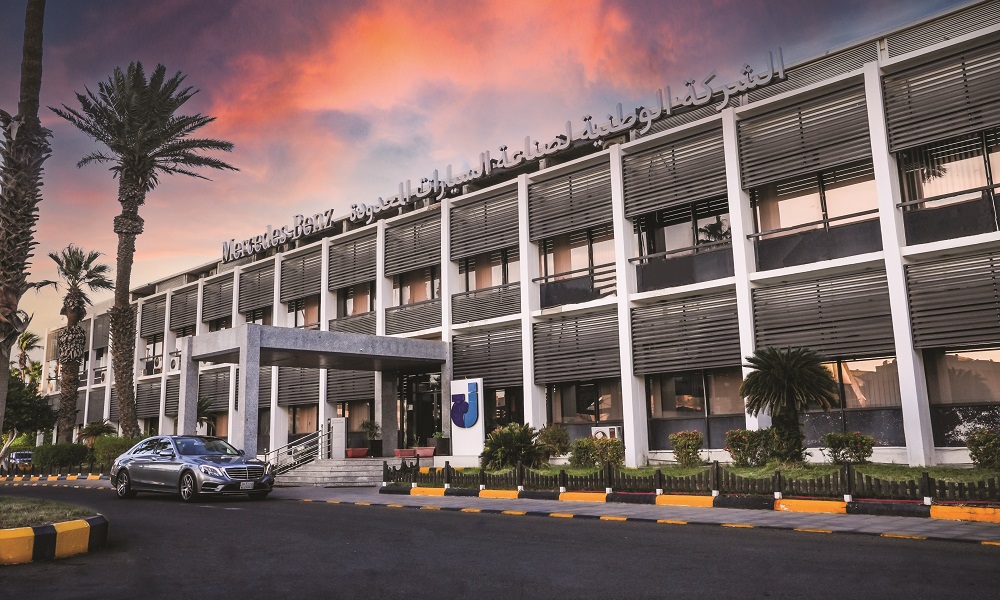The public transport landscape is changing rapidly in Saudi Arabia as it gears up to meet its Saudi Vision 2030 ambitions of a more connected, diverse and advanced economy. While the investment in rail and city metro systems have grabbed the headlines, arguably, it is the expansion of the bus network by the national bus company SAPTCO (Saudi Public Transport Company) that will have the most most profound effect. Tapping into the huge resources , modern bus rapid transit systems are being developed in cities such as Riyadh and Madina as the government gradually links up the sprawling country and cities.
Most of the focus has been on building a modern and capable fleet in the Kingdom. Among them will be a 600 Mercedes‑Benz buses, specially designed for Saudi Arabia, and cater to the travel needs of citizens and visitors of Riyadh.
When SAPTCO and its a joint venture partner, French transport operator RATP – Dev (Régie Autonome des Transports Parisiens), needed to select a huge intake of vehicles into its network it turned to Juffali Commercial Vehicles Saudi Arabia (JCV).
In association with Daimler AG, JCV provides its customers with unparalleled quality Mercedes-Benz products, such as the world class Mercedes‑Benz Citaro, with reliable service and support with full coverage of the Kingdom.
The transport joint venture’s order for 600 Mercedes‑Benz Citaro buses represents the single largest order for a city bus range in the history of Daimler buses. It also represents the cutting edge vehicles needed to operate on the newly established BRT (Bus Rapid Transit) routes in the Saudi capital.
Juffali Commercial Vehicles Saudi Arabia (JCV) is the sole agent and distributor of Mercedes-Benz Trucks, Vans, and Buses in Saudi Arabia and the buses are specially adapted to operate in the hot desert region of Saudi Arabia. The equipment includes an advanced air conditioning system, circulating air blowers in the doors, and double-glazed and tinted side windows. The interior and exterior design of the vehicles has been specifically designed to meet customer requirements from the municipal authorities in Riyadh.
The buses are also equipped with the latest information technology systems. All buses are equipped with WIFI, 18” flat screen screens in the passenger compartment, and cashless payment systems. In addition, automatic counting of passengers at the doors, as well as intelligent vehicle grids with control systems and service parts, support fleet operators by setting up schedules and maintenance intervals.
Heading towards 2030
You only need to look at the numbers if you want to understand the importance of the Saudi Arabian market to the commercial vehicles sector in the Middle East. According to Future Market Insights Global and Consulting, truck sales alone touched $560 million in 2021 and could reach nearly $900 million in the next five years. Fellow data cruncher Statista also estimates that 80,000 commercial vehicles were sold in the Kingdom in 2021. Despite a challenging global landscape, Saudi’s determination to pour money into its economy and infrastructure while continuing its program of reform under the Saudi Vision 2030 framework makes it one of the most exciting places to be heading as a major industry partner as we head further into the decade.
“I am optimistic about the upcoming years,” begins Heiko Schulze, CEO, Juffali Commercial Vehicles Saudi Arabia (JCV), adding that despite the disruption caused by the Covid-19 pandemic, the Kingdom has maintained its economic development where others have faltered.
“It seems to be that also 2022 will be a good year,” Schulze adds. “With Vision 2030, Saudi Arabia has chosen the right direction and the way this vision is executed is positive. Future regulations, when it comes to our industry sector, will also force our customers to renew their equipment. That is why I believe, in general, there is a positive development on the horizon, particularly for our industry sector.”

JCV has been the powerhouse agent for Daimler’s range of Mercedes-Benz Trucks, Vans, and Buses since 1976 ensuring that the German giant has maintained its preeminent status as the number one commercial vehicles brand in the market ever since.
Schulze, however, stresses that buyers in the Kingdom have traditionally placed value and reliability over the very latest in commercial vehicle technology.
“The trend of localisation and the demand for it will continue. It will get stronger,” he says. “With Saudi Vision 2030, Saudi Arabia is striving to get more independent of the oil and develop different industry sectors. In this regard, localisation using the talent Saudi has available is essential, and this is why we have decided, not only to assemble the Mercedes Benz heavy trucks here but also light and medium duty Mitsubishi models.”
“We want to focus on growth over the next 12 months. I believe we need to grow in all the sectors of our industry through the use of different approaches. We need to prepare ourselves to participate in the economic growth of the Kingdom and to be strident in being relatively better than our competitors,” he says.
“We also need to have better solutions for customers than others do. This is what is on the agenda for the next 12 months. This is something we do permanently. We permanently question ourselves; whether we are on the right track, what needs to be enhanced, what needs to be changed, what needs to be reduced, or what needs to be strengthened. This is an ongoing process.”



